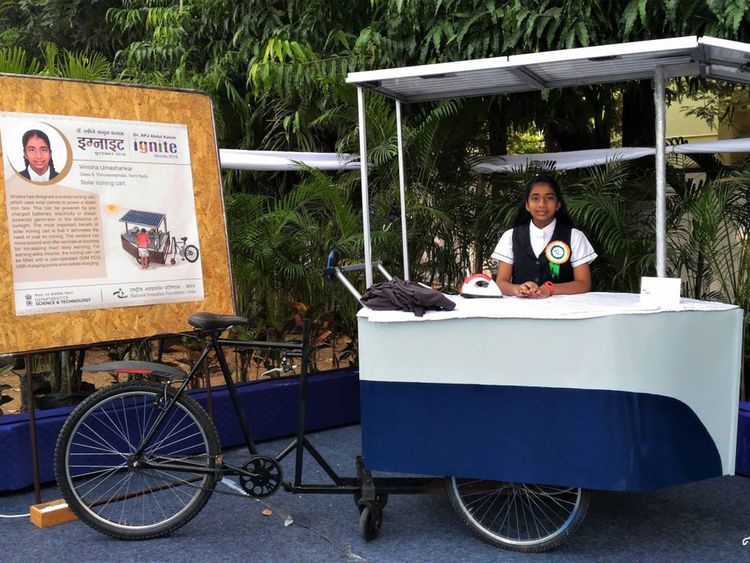
In today’s Electrek Green Energy Brief (EGEB):
- Donald Trump promised to boost coal and put coal miners back to work. It didn’t happen.
- The United Nations approves an Arctic heavy ship fuel ban — but it’s got no teeth.
- This 13 year-old won the 2020 Clean Air Category Children’s Climate Prize with a solar iron.
- UnderstandSolar is a free service that links you to top-rated solar installers in your region for personalized solar estimates. Tesla now offers price matching, so it’s important to shop for the best quotes. Click here to learn more and get your quotes. — *ad.
Coal, four years on
When Donald Trump campaigned ahead of the 2016 presidential election, he promised a US coal revival:
We’re gonna put the miners back to work. We’re gonna put the miners back to work. We’re gonna get those mines open.
So did he succeed? No. S&P Global reports:
Despite a slight increase in coal production in the third quarter compared to the previous one, the period marked a new low in average coal mine employment with just 40,458 jobs, according to an S&P Global Market Intelligence analysis of available data. Average quarterly coal mining employment fell 23.6% from the first quarter of 2017, when Trump took office, to the most recent quarter. Coal production is down 31.5% in the third quarter compared to the first quarter of 2017.
In October 2019, Murray Energy Holdings Co, the largest private coal company in the United States, filed for bankruptcy. May, Electrek reported that US coal-fired electricity power fell to a 42-year low. And in May, we reported that April 2020 was the first month in US history that renewables generated more electricity than coal on every day of the month.
An American Electric Power Co. Inc. spokesperson said:
Our customers, particularly larger commercial and industrial customers with sustainability goals, have made it clear that they want cleaner energy resources to power their businesses and lives.
In July, Senator Tammy Duckworth (D-IL) introduced a bill to support communities hurt by the loss of coal.
Arctic shipping pollution
The UN’s International Maritime Organization (IMO) approved a ban on Friday of ships’ use and carriage of heavy fuel oil (HFO) in Arctic waters after July 1, 2024. However, since it includes loopholes — exemptions and waivers — a complete HFO ban wouldn’t come into effect until mid-2029.
The Clean Arctic Alliance, a coalition of 21 nonprofits, called this outcome an utter disappointment. Dr. Sian Prior, lead adviser for the Clean Arctic Alliance, said:
By taking the decision to storm ahead with the approval of this outrageous ban, the IMO and its member states must take collective responsibility for failing to put in place true protection of the Arctic, Indigenous communities, and wildlife from the threat of heavy fuel oil.
In its current form, the ban will achieve only a minimal reduction in HFO use and carriage by ships in the Arctic in mid-2024, when it comes into effect. It is now crucial that Arctic coastal states do not resort to issuing waivers to their flagged vessels.
The ban… will mean that a full three-quarters of the ships using HFO today will be eligible for an exemption.
The Clean Arctic Alliance urges IMO Member States to seriously consider how the ban can be strengthened ahead of formal adoption next year, and for individual states to examine domestic options for providing the protection required for the Arctic from the risks of HFO use and carriage, such as Norway’s recent proposal to ban HFO from the waters around Svalbard
As Electrek reported on October 16, “90% of the world’s goods are moved by sea. Between 2% and 3% of emissions are generated by shipping. This is a bigger climate story than anything Australia, the UK, Germany, or Brazil individually does on climate.”
Young solar innovator
There are currently around 10 million ironing carts in use in India, which use a total of about 50 million kg of charcoal daily. Vinisha Umashankar, 13, from Tiruvannamalai, in India’s southern Tamil Nadu state, created a solar-powered ironing cart in response to the problem. And as a result, she won this year’s Clean Air Category Children’s Climate Prize. The Swedish energy company-backed prize includes $11,600 to further develop the project.

“When fully charged — which takes just under five hours in bright sunshine — each battery can power the iron for six hours, she said, providing power on cloudy days, though the cart can also run on grid electricity or a generator in a pinch,” reports Gulf News.
Umashankar told the Thomson Reuters Foundation:
I calculated the enormous quantity of charcoal being used, the pollution from it that worsens climate change, damages Mother Earth and human health. I wanted to create a renewable resource to replace charcoal.
The Children’s Climate Prize jury said:
With a smart design and a strong understanding of the problem of charcoal as an air pollutant, Vinisha has managed to combine science, innovation, and technology to design and create the solar powered ironing cart. If implemented on a large scale, this is an invention that can have a significant positive impact on India’s air quality and people’s health, while reducing unsustainable use of wood. The jury is impressed and sees a young scientist and entrepreneur with a strong passion for clean air that can bring multiple benefits to both society and the environment.
Author: Michelle Lewis
Source: Electrek



